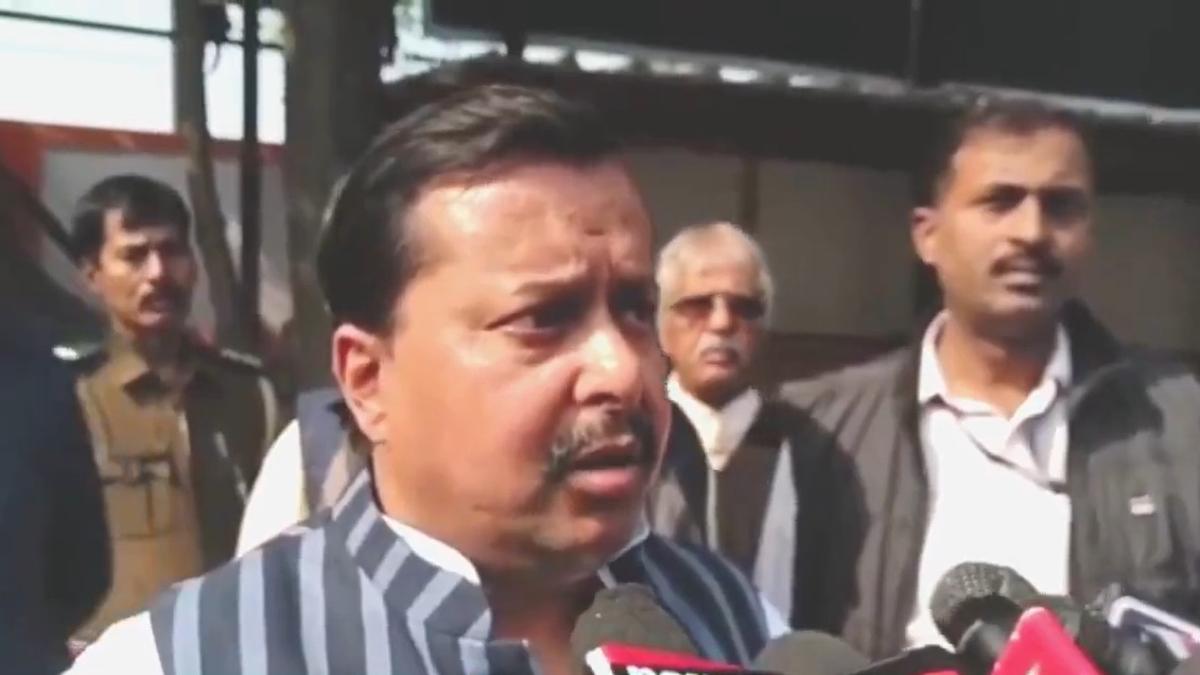Is Bangladeshi Infiltration Fueling Political Fires in Bihar?
The upcoming Bihar Assembly elections are heating up, with the issue of Bangladeshi infiltration taking center stage. A recent statement by BJP leader Nitin Nabin has reignited the debate, sparking controversy and highlighting the complex political dynamics at play in the region. Will this tactic prove successful, or will it backfire like it did in neighboring Jharkhand? Let's delve into the details and uncover the truth behind this explosive claim.
The BJP's Assertions: A Strategy or a Scare Tactic?
The BJP's renewed focus on Bangladeshi infiltration in Bihar's Seemanchal region—an area with a significant Muslim population—is raising eyebrows. Nabin's claims of widespread illegal immigration and the need for immediate action are creating significant political ripples. But why is this happening now, and what motivates this resurgence?
The Political Landscape: Elections and Infiltration
The timing is certainly intriguing. With the Bihar Assembly elections on the horizon, this contentious issue serves as potent political ammunition. Critics argue the BJP's actions are less about genuine concern for immigration and more about mobilizing a particular segment of the electorate and diverting attention from other important matters.
Seemanchal: A Region Under Scrutiny
Seemanchal, a strategically important region comprising four districts, is known for its rich demographic diversity. Its population composition makes it a crucial battleground for various political forces. While concerns over potential infiltration are legitimate, they should not overshadow the region's development needs and ongoing issues of poverty, inequality and lack of adequate infrastructure.
Jharkhand's Precedent: A Cautionary Tale
The BJP's previous campaign tactic focusing on Bangladeshi infiltration in Jharkhand resulted in a significant electoral setback. This raises questions about whether the strategy will yield better results in Bihar, especially when the INDIA bloc already holds a strong position within the Seemanchal region. Could this be seen as a sign of desperation, indicative of a lack of trust in the broader success of BJP's message in this important region?
The Opposition's Response: Counter-Narratives and Accusations
The BJP's claims have been met with swift and forceful counterarguments from opposition parties. The JD(U) and RJD have accused the BJP of using the infiltration issue as a political tool, deflecting from more pressing concerns such as employment and development. These opposition parties have characterized this campaign stance as divisive, harmful and an attempt to exploit religious sentiments.
Accusations of Political Opportunism: Divisive Tactics
Accusations of political opportunism are rampant. Opposition parties believe the focus on Bangladeshi infiltration distracts voters from critical discussions of policy and real issues of development in Bihar. The argument highlights the underlying anxieties and concerns surrounding political motivations behind this highly sensitive issue.
Emphasizing Development and Economic Issues
The opposition parties are attempting to contrast their campaign platforms by concentrating on the pressing socio-economic issues impacting Bihar's population. The contrasting approaches highlight a key fault-line and reveal two very different campaigning strategies.
Examining the Facts: A Need for Objective Assessment
The claims about Bangladeshi infiltration need thorough scrutiny. The sheer complexity of the issue means solutions demand factual information, collaborative governance, and careful planning rather than emotional political appeals.
The Importance of Evidence-Based Policies
Addressing immigration issues requires accurate data and well-defined solutions. Using emotionally charged rhetoric without credible supporting information could be seen as irresponsible and counterproductive.
Collaborative Governance and Transparency
Effective border management needs cooperation across governmental departments and effective collaboration between the state and the federal government. Increased transparency, and effective processes should be the benchmark of appropriate policies in this complex and sensitive issue.
The Path Forward: Beyond the Political Rhetoric
Moving forward, Bihar needs a nuanced and informed discussion regarding immigration and border security, focusing on evidence-based policies. Political gamesmanship must give way to practical solutions which prioritize the welfare of all residents of the region, and promote positive relationships and inclusive politics.
A Focus on Economic Development and Inclusive Policies
The focus must shift from political point-scoring towards genuine development, guaranteeing all residents have access to essential services, resources, and opportunities. Focus should be given to tackling inequality and boosting socio-economic prospects.
Fostering a Climate of Understanding and Tolerance
Respect, inclusiveness, and collaborative approaches, between all concerned parties, should be the hallmarks of good governance and positive community cohesion. Understanding is essential, and addressing anxieties needs to be a priority.
Take Away Points:
- The issue of Bangladeshi infiltration in Bihar has become a key political battleground in the upcoming elections.
- The BJP's strategy of focusing on this issue has been criticized as politically opportunistic by opposition parties.
- The importance of objective assessments and evidence-based policies are highlighted by critics of the BJP.
- The path forward must include a focus on inclusive development and community cohesion rather than the exploitation of differences for political gain.




